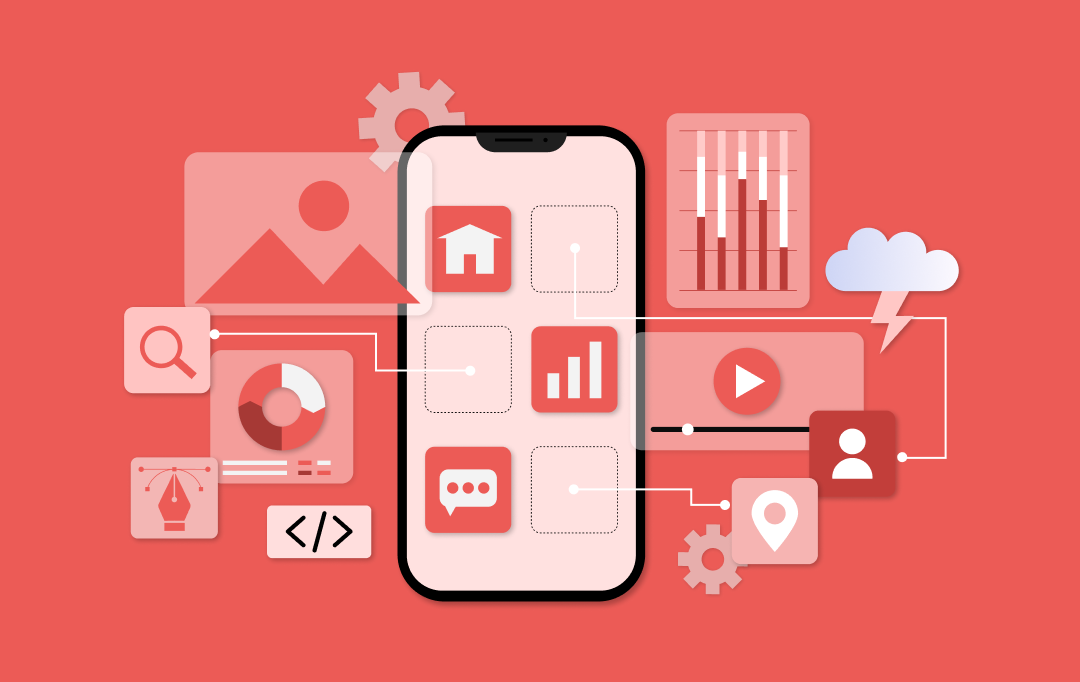- Problem Statement
- The Challenge: From Legacy Files to Real-Time Insights
- The Solution: Building a Real-Time Data Visualization Pipeline
- Step 1: Automating Local Setup
- Step 2: Extracting and Converting DBF Data
- Step 3: Streaming and Centralizing the Data
- Step 4: Database Insertion and Processing
- Step 5: Frontend Visualization and Insights
- Business Value Achieved
When you walk into a food outlet and place an order, it looks simple: swipe your card, grab your meal, and go. But behind every order lies a stream of valuable data. Now, imagine this happening across hundreds of stores spread across multiple countries, with each outlet running several POS (Point of Sale) systems. That’s exactly the challenge one of our clients—a leading food chain operating across the Middle East—faced.
They wanted to visualize order and payment data in real time across more than 400 POS systems and multiple regions to understand sales trends, performance, and customer behavior.
Problem Statement
The client’s POS systems stored all transactional data in local .dbf files. Each store maintained its own files without any centralized integration. While these DBF files contained critical information like order value, payment type, and timestamps, the client had no visibility into the overall business performance.
Data existed—but it was locked away in outdated formats. Leadership relied on delayed, manually prepared reports, often receiving data days after the transactions occurred. This made it nearly impossible to track sales patterns, identify fast-moving products, or react to performance drops quickly.
In short, the client had data, but no business intelligence.
The Challenge: From Legacy Files to Real-Time Insights
The legacy data structure introduced several technical and operational challenges:
- Scattered data sources: Each outlet stored its own DBF files independently.
- Outdated format: Modern data pipelines and visualization tools couldn’t read .dbf files directly.
- Manual handling: Any attempt to consolidate data requires human intervention and time.
- Scalability issues: Expanding to more stores meant more complexity and data fragmentation.
The Solution: Building a Real-Time Data Visualization Pipeline
After evaluating multiple options, our team designed a fully automated data ingestion and visualization system, powered by a combination of backend automation and frontend analytics dashboards.
Step 1: Automating Local Setup
We developed a Windows PowerShell script that automatically deployed the entire pipeline on each POS machine. This eliminated the need for manual installation across hundreds of stores—new outlets could be onboarded with a single script run.
Step 2: Extracting and Converting DBF Data
We built a Node.js-based backend service that continuously monitored DBF files for new transactions. As soon as updates were detected, the service extracted and converted the data into a structured format (CSV/JSON), making it ready for processing.
Step 3: Streaming and Centralizing the Data
The processed data was streamed in real time to a centralized database through AWS Kinesis and AWS Firehose. This ensured every transaction from 400+ POS systems reached the database securely, reliably, and almost instantly.
Step 4: Database Insertion and Processing
An AWS Lambda function was triggered each time new data landed. It validated, transformed, and inserted the records into our backend database, creating a unified data source for visualization.
Step 5: Frontend Visualization and Insights
The frontend application, connected to this centralized database, powered interactive dashboards built by our team. These visualizations provided clear, real-time insights into:
- Store-wise and region-wise sales trends
- Order frequency and peak-hour patterns
- Payment method analysis (cash, card, wallet, etc.)
- Performance comparisons across outlets
For the first time, the client’s leadership could see live business performance across all regions in a single dashboard, powered entirely by their own data.
Business Value Achieved
Our solution transformed how the client interacted with their operational data, turning scattered legacy files into real-time, actionable insights:
- 99.9% Real-Time Data Availability: Almost all transactions are visible within seconds, enabling instant decision-making.
- End-to-End Automation: From DBF extraction to visualization—every step runs automatically, with 0 manual setup for new stores.
- Actionable Visualization: Custom-built frontend dashboards replaced manual Excel reports, giving leadership clear, live KPIs and enabling 5x faster insight generation.
- Scalability: New stores are onboarded instantly through a one-click PowerShell deployment.
- Cost-Efficient Cloud Infrastructure: Leveraging AWS managed services minimized overhead while ensuring reliability and performance.
- Data-Driven Operations: Store managers can now identify top-selling products, track payment splits, and detect underperforming regions—all from a centralized visualization dashboard.
Key Metrics:
- 400+ POS systems integrated
- 99.9% real-time data accuracy across all stores
- 100% automation from extraction to visualization
- 5x faster insight generation
- 0 manual setup for new store integration
- Centralized dashboard for leadership and operations
In summary, we helped the client turn scattered legacy .dbf files into a centralized, visual intelligence platform. With automated extraction, cloud-based processing, and real-time frontend dashboards, the food chain now operates with full visibility into every order, every store, and every region-transforming raw data into business intelligence.


- In just 2 mins you will get a response
- Your idea is 100% protected by our Non Disclosure Agreement.

Building a Robust Enterprise Data Strategy - Benefits, Use Cases, Process, Costs & Best Practices
Key takeaways: A solid enterprise data strategy removes silos, reduces costs, and restores confidence in decisions. AI initiatives only succeed when built on reliable, well-governed enterprise data foundations. Executives, employees, and customers gain through faster insights and personalized experiences. The roadmap starts with goal alignment, audits, future vision, and phased execution. Industries see measurable ROI:…

Why Enterprise Application Security is Mission Critical and How to Get it Right
Key takeaways: Enterprise applications are increasingly complex, spanning cloud-native architectures, APIs, and third-party integrations, which broadens the attack surface. Adopting DevSecOps and embedding security early in the development lifecycle reduces breach impacts by up to 30%, proving proactive security integration is vital. Regulatory compliance, business continuity, and customer trust hinge on effective application security strategies…

How Custom Enterprise Apps Are Powering Dubai’s 2040 Vision for Smart, Sustainable Growth
Key takeaways: Custom enterprise app development in Dubai is crucial for realizing the Dubai 2040 Vision smart city goals. Custom enterprise apps are fundamental to realizing Dubai's vision for a smart, sustainable future, integrating technology into every urban facet. Smart city apps in Dubai leverage IoT, AI, and cloud technologies to create integrated platforms managing…



































